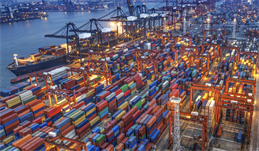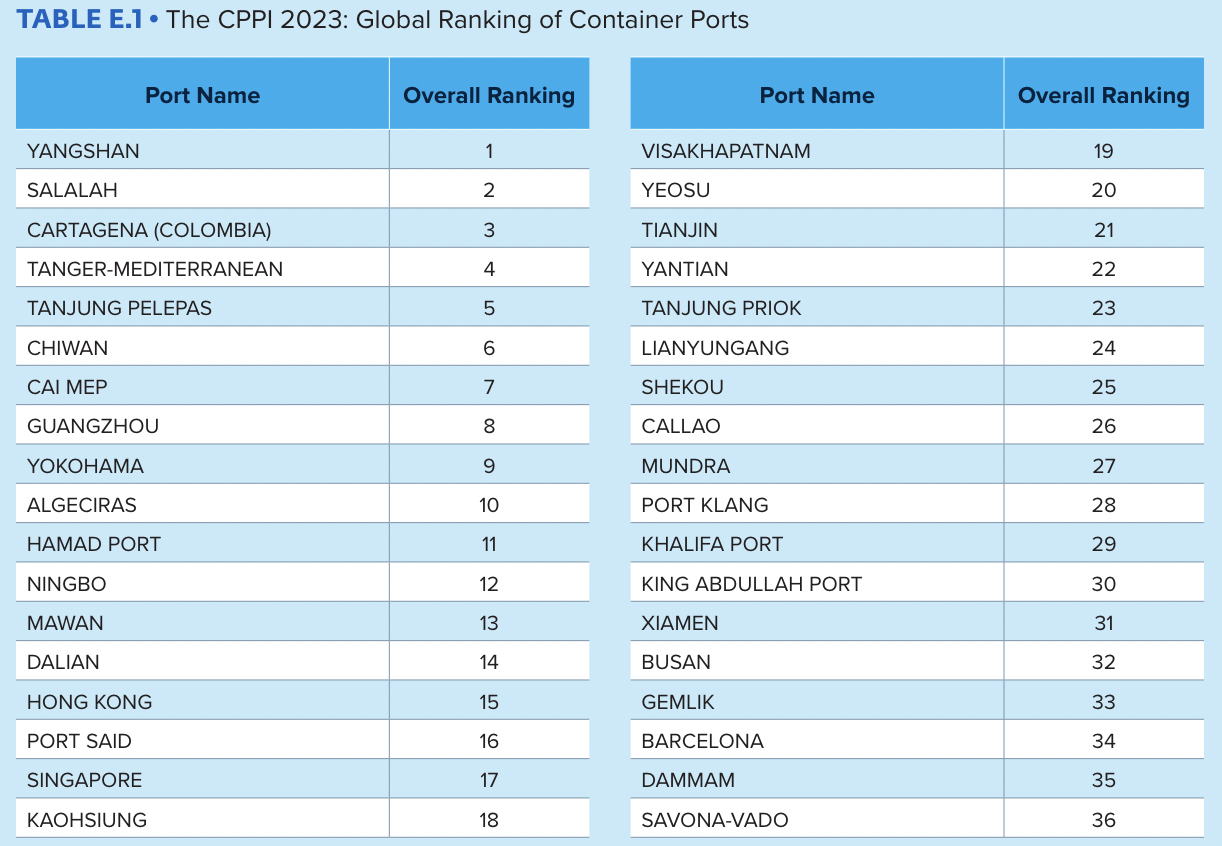
Yangshan Port in China was named the world's most efficient port in 2023, with 12 others in East and Southeast Asia making the top 20 list last year, according to the newest global Container Port Performance Index (CPPI).
The other top-ranked container port in the CPPI 2023 is the Port of Salalah (Oman), in second place, retaining its ranking from the CPPI 2022. Third place in the CPPI 2023 is occupied by the port of Cartagena, up from 5th place in the CPPI 2022, whilst Tangier Mediterranean retains its 4th place ranking.
CCPI said Tanjung Pelepas improved one position to 5th, Ningbo moved up from 12th in 2022 to 7th in 2023, and Port Said in Egypt moved from 16th to 10th in 2023.
Developed by the World Bank and S&P Global Market Intelligence, the CPPI ranks 405 global container ports by efficiency, focusing on the duration of port stay for container vessels.
Its primary aim is to identify areas for enhancement that benefit multiple stakeholders in the global trading system and supply chains, from ports to shipping lines, national governments, and consumers.
According to the new report, regional disruptions impacted port performance everywhere.
"While the challenges caused by the COVID-19 pandemic and its aftermath eased further in 2023, container shipping continues to be an unpredictable and volatile sector," said Martin Humphreys, lead transport economist at the World Bank.
"Major ports need to invest in resilience, new technology, and green infrastructure to ensure the stability of global markets and the sustainability of the shipping industry," he added.
The CPPI noted that Khalifa Port fell from 3rd position in 2022 to 29th position in CPPI 2023, while Hamad Port fell from 8th in 2022 to 11th in 2023.

[Source: Container Port Performance Index 2023]
Turloch Mooney, head of port intelligence & analytics at S&P Global Market Intelligence, noted that there is a "greater awareness and focus on resilience and efficiency of maritime gateways and greater understanding of the negative impact of port delays on economic development."
"The highly interconnected nature of container shipping means the negative effect of poor performance in a port can extend beyond that port's hinterland and disrupt entire schedules. This increases the cost of imports and exports, reduces competitiveness and hinders economic growth and poverty reduction," he added.
The fourth edition of CPPI is based on the biggest dataset ever: more than 182,000 vessel calls, 238.2 million moves, and about 381 million twenty-foot equivalents (TEUs) for the full calendar year of 2023.
The report noted that more than 80% of merchandise trade is transported by sea, so ports' resilience, efficiency, and overall performance are crucial to global markets and economic development.



